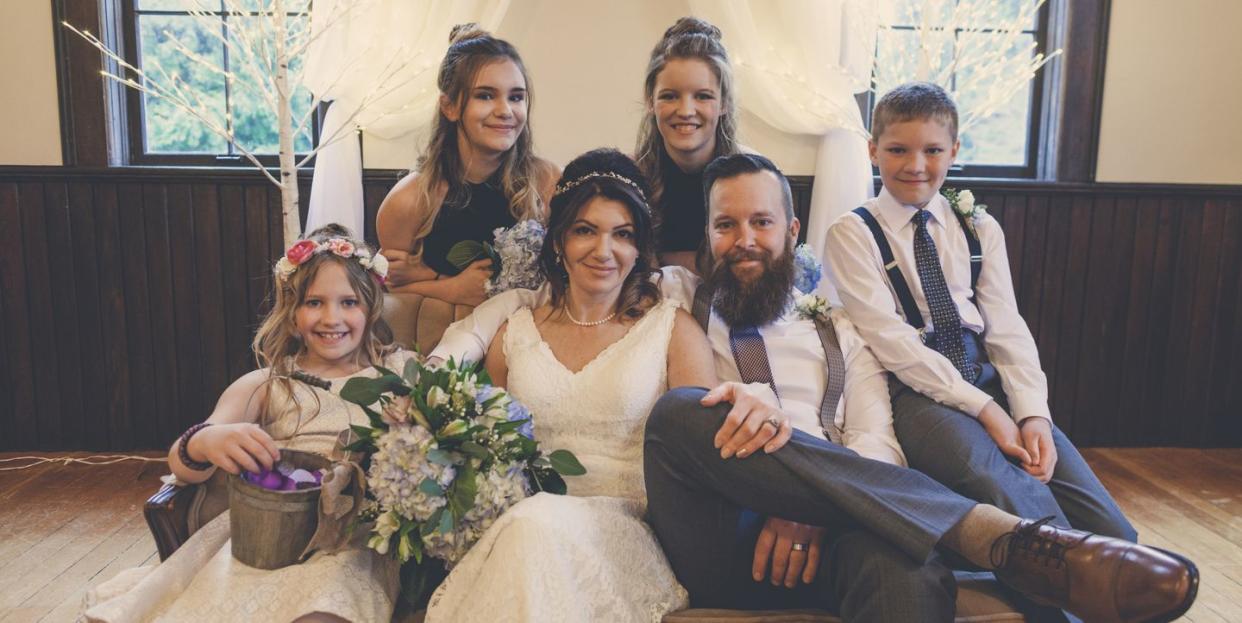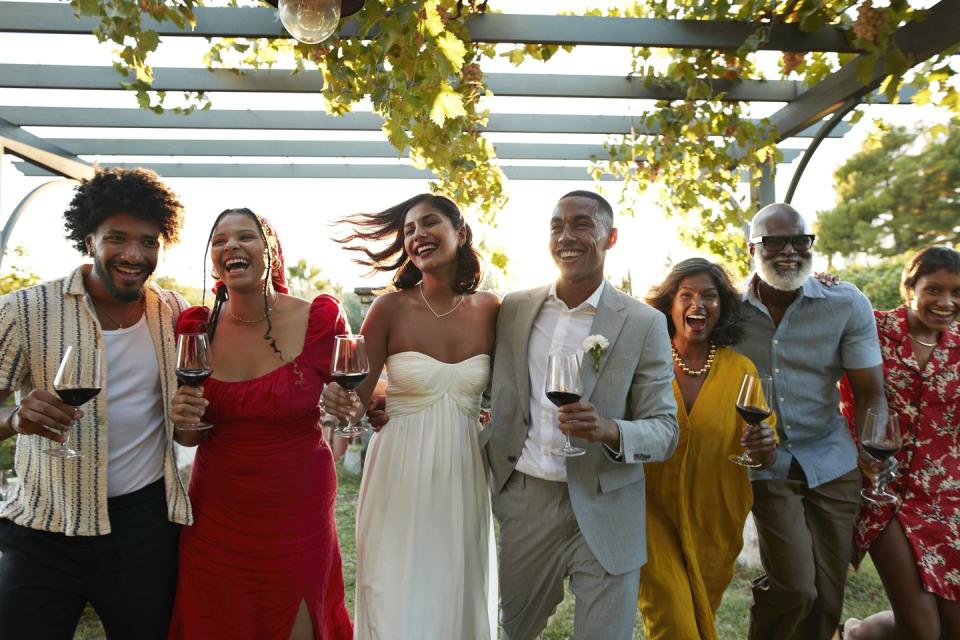Saying "I Do" Again? Here's What to Do (and Skip) When Planning Your Second Wedding

Last year, an estimated 21% of the record 2.4 million weddings in the U.S. involved both spouses marrying for the second time, according to the research firm The Wedding Report. Even with second marriages becoming increasingly common, planning a second wedding can still be a stressful undertaking filled with endless details and to-dos, including setting a budget, choosing attire, and drafting a guest list.
Second weddings also present etiquette considerations that first-timers don’t face, such as whether the bride should wear white, how children should be involved, and whether it’s appropriate to create a registry.
To help you alleviate stress and plan a joyful celebration, we’ve consulted experts on the etiquette of planning a second wedding, so you can tailor your special day to suit your tastes (rather than the expectations of others!).
Do involve your kids
Many second marriages involve the blending of families, so it’s important to offer kids a major role in the wedding events. “Tell kids first,” advises etiquette trainer Courtney Opalko, “then let them have a say in how they want to be included.”
Joy Duro, a wedding planner with The Social Co. Events, says that kids who are enthusiastic about being involved in the ceremony can “read poems or scriptures or do little performances at the wedding or reception.”
Just keep in mind that kids can introduce an element of unpredictability, so if you’re planning to have them play a key role in your ceremony, it’s better not to have your heart set on a very formal celebration.
Do revamp your invitation wording
Tradition dictates that wedding invitations should include the names of the engaged couple's parents, as they are the hosts of the wedding.
“Second weddings are typically hosted by the bride and groom themselves,” says Duro, “so the wording should be more personalized and less formal.” The invitation could list the couple's children as hosts, or it could simply come from the couple themselves.
Don’t repeat your first wedding
Even if you loved every detail of your first wedding, your second should feel as unique and special as your relationship.
“There’s a lot of pressure with your first wedding, so the second time around, personalize it and have fun,” says Duro. “You don’t have to get caught up in the formalities of the event this time. Focus on the things and people you love. Showcase your interests so it doesn’t look like a cookie-cutter wedding.”

Do let guests choose their own seats
There are good reasons to abandon the tradition of having your wedding guests sit on different sides of the ceremony space. For instance, you and your spouse-to-be might decide together to invite your exes to the wedding, but their presence could create awkwardness for members of your extended family. Abandoning separated seating allows guests to sit where they’re comfortable.
“Everyone should sit in the spot of their choosing,” says Duro. Even if exes don’t attend, Duro sees separated seating as an antiquated tradition that’s due to be retired.
Do wear what makes you feel good
For your second wedding, wear what makes you feel your best. “Today, a bride can wear whatever they like. While traditionally a second-time bride might not have worn white, it’s common and accepted now,” says Opalko.
The loosening of sartorial rules also extends to the bridal party, says Duro. While second-time couples can choose to make their celebrations as formal or casual as they like, “It’s usually a more relaxed environment the second time around, with the guys wearing suits rather than tuxes,” she says.
While second-marriage weddings are often less formal affairs, couples can choose to go the opposite direction. “If one of the parties had a courthouse wedding the first time they were married, they might choose to go more formal for the second wedding,” says Duro.
Don’t expect your parents to pay
“The second time around, the bride and groom are often well established with their careers and children,” says Duro. Whether or not the parents shelled out for the first wedding, it’s unreasonable to expect them to finance a second trip down the aisle.
“It’s better to assume that the expenses will fall on the couple the second time around,” agrees Opalko.
Do have a registry
Though you and your betrothed probably already have all of the appliances you need to outfit your shared kitchen, it’s fine to create a small wedding registry with items at a range of prices, says Opalko. She advises against asking for cash, however. “There should never be a request for money in place of a gift,” she says. If the guests would like to give a gift, the couple should accept that gift.”
Duro suggests another approach. “Couples can have a wedding website that includes all of the details of the celebration and a bit about their story. There, they can outline their honeymoon plans and include a link in case people want to contribute to that or to a house fund,” she says.
Don’t expect a shower
While your friends and family will want to celebrate your happy occasion, you shouldn’t feel hurt if no one throws you a bridal shower. “Showers aren’t as common as bachelor and bachelorette parties for second weddings,” says Duro, “because most people already have all of those practical household items.”
If a shower is important to you, however, be sure to communicate that to the other parties involved in your wedding. “Society is much more accepting of divorce and second weddings,” says Opalko. “We’ve seen an array of celebrities who’ve had over-the-top celebrations for second and third weddings, and that’s made us all more accepting of weddings and wedding-related events that take place however the couple chooses.”
You Might Also Like

